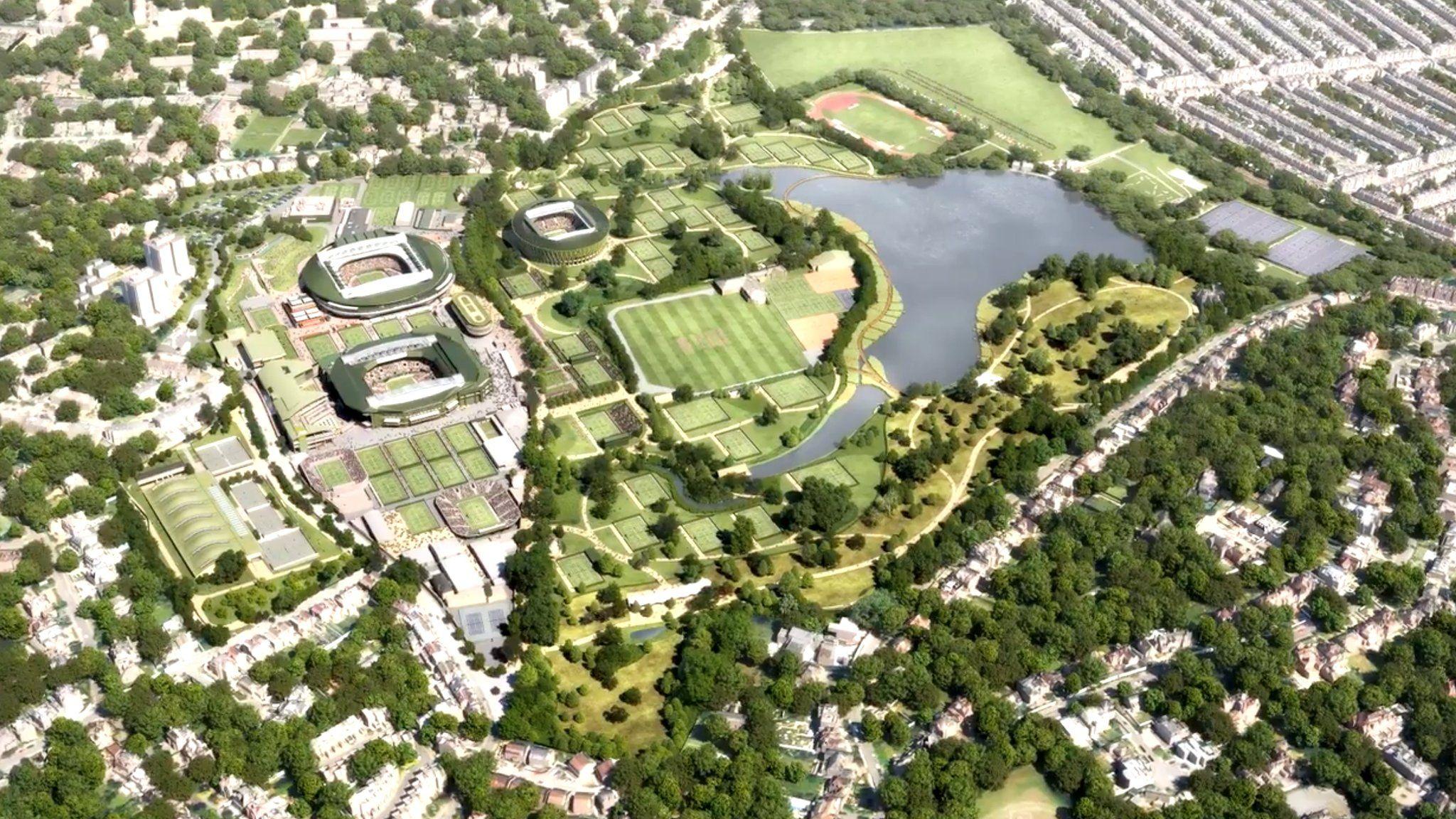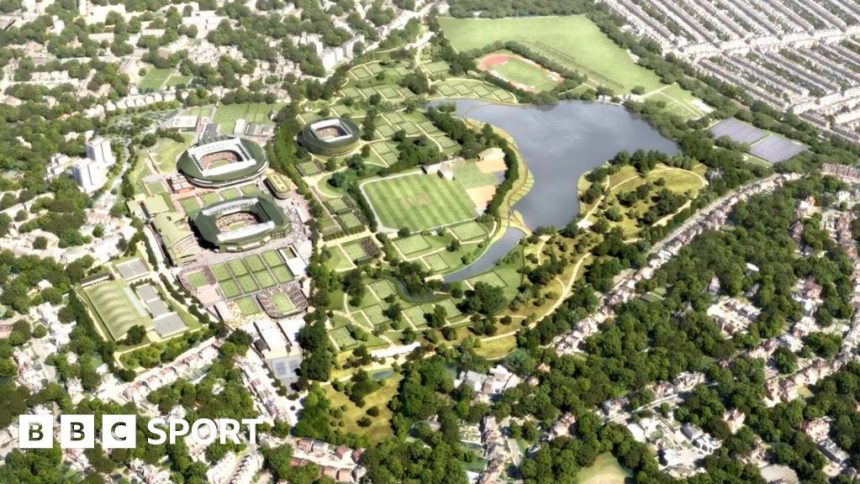Controversial Wimbledon expansion plan approved

The All England Club (AELTC) wants to build 39 tennis courts on the former site of Wimbledon Park Golf Club
-
Published
Wimbledon’s controversial plans to build 39 new tennis courts on protected open land opposite the All England Club has been approved by planning officials.
The All England Club wants to build the courts, including an 8,000-seat stadium, on Wimbledon Park.
Jules Pipe, the Deputy Mayor of London, decided that “significant” community and economic benefits of the scheme outweigh the harm.
Local residents and politicians fighting the proposal are now running out of options, but could still apply for a judicial review.
Deputy Prime Minister Angela Rayner has the power to hold a fresh planning hearing, but has made clear in a letter seen by BBC Sport that the application “should be determined at a local level”.
The development will allow Wimbledon qualifying to take place on site, in line with the other three Grand Slams.
According to All England Club chair Deborah Jevans, it would prevent the Championships “falling behind the other Grand Slams”.
There has been strong local opposition from groups such as Save Wimbledon Park, which fears the area will become a “huge industrial tennis complex”.
Boos were heard from members of these groups when Pipe’s decision was announced at London’s City Hall on Friday.
Wimbledon qualifying is currently held around three and a half miles away at Roehampton’s Community Sports Centre.
Why does Wimbledon want the expansion?
The scheme would result in Wimbledon qualifying switching from Roehampton, which can cater for about 2,000 spectators a day.
With the new development in place, up to 10,000 people a day would be able to watch qualifying and up to 50,000 could enter the grounds during each day of the main fortnight.
It would also represent an upgrade in facilities for the players.
The new show court would have a roof. That would meet Wimbledon’s goal for another large show court able to host matches whatever the weather.
However, Fleur Anderson, the Labour MP for Putney, told the hearing she believed revamping the existing facility at Roehampton is a “viable solution”.
What do local residents say?
Many local residents have been vociferously opposed to the plans.
The Wimbledon Society describes the proposal as an “industrial tennis complex with an unacceptable environmental impact”.
A petition organised by Save Wimbledon Park has attracted almost 21,000 signatures.
Opposition centres around the environmental impact of the scheme. Fears have been raised over flood risk and air quality, plus the loss of wildlife, trees and open spaces.
People are also concerned about the traffic, noise and environmental impact of at least six years of building work.
Some residents worry about the extra spectators that will be able to visit the site every day, others believe the All England Club’s ulterior motive is to build a hotel complex on the site.
The All England Club says the plans will “provide year-round significant public benefit to our community’, adding it understands “the importance of caring for the landscape and ecology of the site”.
What benefits are promised to the local community?
A new 23-acre public park will be created, with access free and all year round – excluding the weeks of the Championships.
The intention is to recapture some of the original design of Lancelot ‘Capability’ Brown – the 18th Century landscape architect renowned for his elegant and natural looking landscapes.
Silt will be removed from the lake and a new boardwalk installed.
A minimum of seven of the grass courts will be made available to the local community for the summer weeks which follow Wimbledon.
“We’re excited to work with local residents and community groups to shape what the year-round uses for each space might look like, and curate a programme of activities that the community value and appreciate,” said the All England Club.
However, Paul Kohler, the Liberal Democrat MP for Wimbledon, believes the projected benefits are “utterly illusory”.
Some local campaigners have described them as “crumbs on the tables”.
How have we got here?
July 2021: The All England Club submitted a planning application for the scheme concurrently to both Merton and Wandsworth Councils
October 2023: Merton Council’s planning committee granted permission, subject to conditions – it believed “very special circumstances did exist” and that public benefit of the scheme outweighed the environmental harm
November 2023: Wandsworth Council’s planning committee refused permission – in line with officers’ recommendations, it decided the loss of open space made it an “inappropriate development” and there were “not special circumstances” to outweigh the harm
January 2024: The Greater London Authority, to which the case had been referred, appointed London’s deputy mayor Jules Pipe to decide the outcome
April 2024: The All England Club submitted revised plans, which included the creation of additional 1.7 hectares of public parkland and a reduction of car parking space
September 2024: The GLA panel, led by Pipe, heard parties on both sides of the row present their cases at London’s City Hall before giving approval to the All England Club
Related topics
-
-
Published6 June
-






